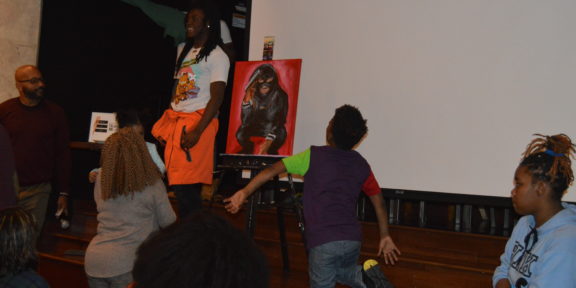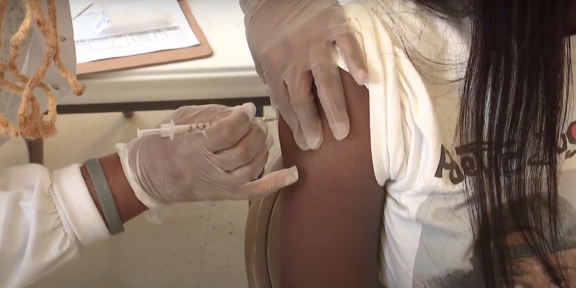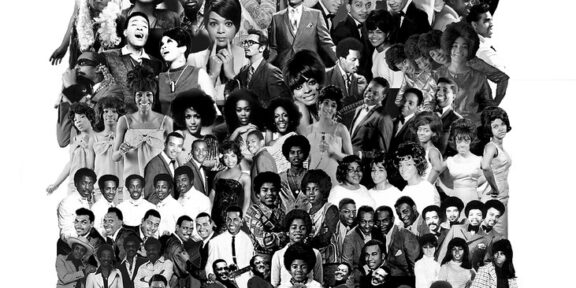The 2022 film Till tells the story of a mother leaping into action and parking the civil rights movement after her son was lynched in Mississippi.
Mamie-Till Mobley’s 14-year-old son, Emmett Louis Till, was kidnapped and murdered by Roy Bryant and J.W. Milam after Bryant’s wife, Carolyn Bryant, accused Emmett of offending her while he visited their store in Money, Mississippi. His murder sparked outrage, catapulted the Civil Rights movement and galvanized discussion around developing policy to criminalize lynching.
Posthumously and unintentionally, Emmett became a Civil Rights icon in his own regard. His story stretched across generations in the Black community, even landing in the Baton Rouge, Louisiana, home of Keith Beauchamp, in the early 1980s. Beauchamp co-wrote this film, produced and directed a 2005 documentary about Emmett and investigated his story so extensively enough to have Emmett’s case reopened in 2004.
“While I was in my parents’ study—I was going through old vintage magazines that they kept over the years. And I pulled out a Jet Magazine, and I opened the pages. And on one side of the page, there’s this angelic face of a young, little boy—sort of a mirror image of myself at that time. And then on the other side of the page was this horrific face of this monster,” Beauchamp said as he explained the first time he saw the images of Emmett before and after his death.
A large part of Emmett’s story coming to prominence was because of his mother’s ability to take action and fight for her son. She refused to allow Emmett to be fixed up by the mortician and insisted on hosting an open-casket funeral so that people could see what she saw. PBS, who released a documentary about Emmett’s murder in August, reported that 50,000 people in Chicago saw Emmett’s mutilated corpse.
Further, Till-Mobley allowed for Jet Magazine to photograph herself, her boyfriend at the time and Emmett’s corpse for publication. Staying true to her mission of having Emmett’s name remembered and his story told, she granted Beauchamp permission to produce a film about Emmett in the late 1990s
“It was important that I actually got her blessings to produce this film about her son because there’s no way I would’ve ever touched the story,” Beauchamp said.
“Before she passed away, she understood and she knew that there was enough evidence to actually get the case reopened, and she knew I was gonna be the one to do it. So, she charged me with certain things before her passing. One: she wanted me to pursue justice for Emmett Till. Two: she wanted to make sure I didn’t forget about all the other Civil Rights martyrs who lost their lives throughout the civil rights struggle. And lastly: she wanted to produce a feature film,” he explained.
Adhering to all calls to action assigned to him by a woman he calls one of the most prolific people he’s ever met, Beauchamp’s Till made it to theaters on Nov. 14. Some Howard students, like Keona Banks, took the opportunity to see a pre-screening of it.
“I wanted to see the movie because I saw a promo for it that said it wasn’t going to be like the typical Black trauma where they put Emmett Till and the death and the violence on the screen. It was going to show the story of the mother, so I wanted to see it from that perspective and see how it really humanizes the story,” Banks said.
“We know the stories. We know all the pain and suffering our ancestors have been through throughout the years, but it was important to get the human side of it and see the lives that they lived beyond just the violence that they faced,” she continued.
This film comes after Emmett’s case has made headlines over 60 years after his death.
An unserved warrant for Carolyn Bryant’s arrest for Emmett’s kidnapping—dating back to Aug. 29, 1955–was found in a Mississippi courthouse in June. In July, CNN obtained a copy of her unpunished memoir and revealed the inconsistencies in her storylines. In August, a Mississippi jury chose to not indict the 88-year-old on kidnapping and manslaughter charges.
Beauchamp sees this as a historic time for the film and charges that it is more than a film.
“This film is not just a movie, it’s a movement. It’s a movement to make sure, one, we awaken the sleeping giant in each and everyone of us … and to also make sure that we hold everyone who participated in the kidnapping and murder of Emmett Louis Till accountable for their actions. No matter how old they are, no matter what color they are or what gender, we must see justice done in Till’s case,” he said.
In teens of who should see it, Rachel McCain, a sophomore television and film major at Howard University, thinks everyone should see it.
“I think everyone should see this film. I don’t see this as a Black or a white issue. This is a story about a boy who went on vacation to see his family and was murdered, and no one of any race should ever have to worry about that happening … . This is a movie that everyone should see,” McCain said.
Darreonna Davis is a reporter for HUNewsService.com.













